One-on-one with Hollywood star Jesse Eisenberg
Known for his performances in The Social Network and Zombieland, Jesse Eisenberg speaks to The AJN about his latest role in World War II biopic, Resistance.
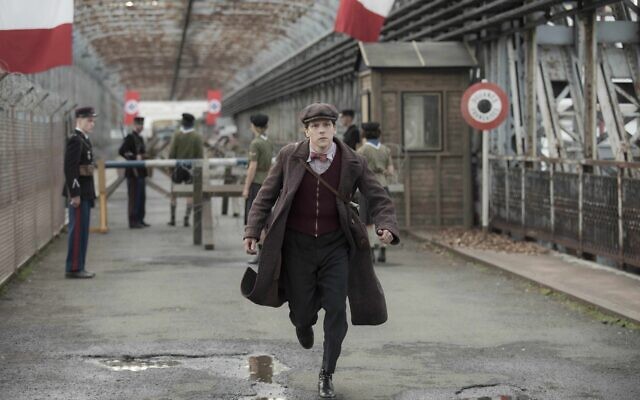
FOR Jesse Eisenberg, his lead role in the new movie Resistance was not solely a professional endeavour, but one imbued with personal meaning.
“My family comes from a part of Poland that is very close to where Marceau’s father came from in south-eastern Poland, so in some ways, it felt like I was playing somebody who, were I born with the same genetic makeup but 70 years earlier, I would be him,” said the 36-year old Hollywood actor, known for his previous roles including as co-founder of Facebook, Mark Zuckerberg in The Social Network, and later starring in Woody Allen’s Café Society and To Rome with Love.
Directed by Jonathan Jakubowicz, Resistance – a World War II revolutionary tale of courage and hope in Nazi-occupied France – stars Eisenberg as then aspiring mime artist, Marcel Marceau.
Born as Marcel Mangel (he later adopted the name Marceau), Marcel worked to save Jewish children during the Holocaust, before rising to international fame as a professional mime.
Recruited by his politically active cousin Georges Loinger (played by Géza Röhrig), Marceau began aiding the rescue effort at 15 years of age, when he was only a few years older than many of the children whom he helped.
“Marcel talked about it infrequently and with the kind of humility that is striking,” said Eisenberg, speaking to The AJN by phone from southern Indiana where he and his family are currently based. They typically split their time between Indiana and New York.
“I don’t know what to attribute his humility to – whether he didn’t want to distract from his career as an artist, or he probably felt, like a lot of people, a certain amount of survivor’s guilt. I know that my family who survived the war in America felt a great amount of survivor’s guilt.”

Eisenberg’s Polish ancestry is one of many similarities connecting him with Marceau. Resistance also granted Eisenberg the opportunity to reflect on his mother’s artistic output as a former professional clown.
“When I became an actor in more serious movies and plays, I imagine that I could have taken the work that my mother did maybe less seriously, as a less sophisticated form of performance, but that would be an incorrect assessment to make,” said Eisenberg.
“My mother performed at birthday parties for children and took as much joy as anybody in a Shakespearean play, and took as much satisfaction from her craft [as] I think somebody who was doing something more sophisticated would be taking in it.
“The joy that she brought others through her creativity is an equivalent, if different, joy to something we might hold in higher esteem. I think what Marcel struggles with throughout the movie is wanting to be taken very seriously. He is very upset when someone refers to him as a clown, but the more honest assessment he would make in a moment of candour would be that he likes nothing more than bringing joy to these children, and that his greatest, most pure artistry is during those moments.”
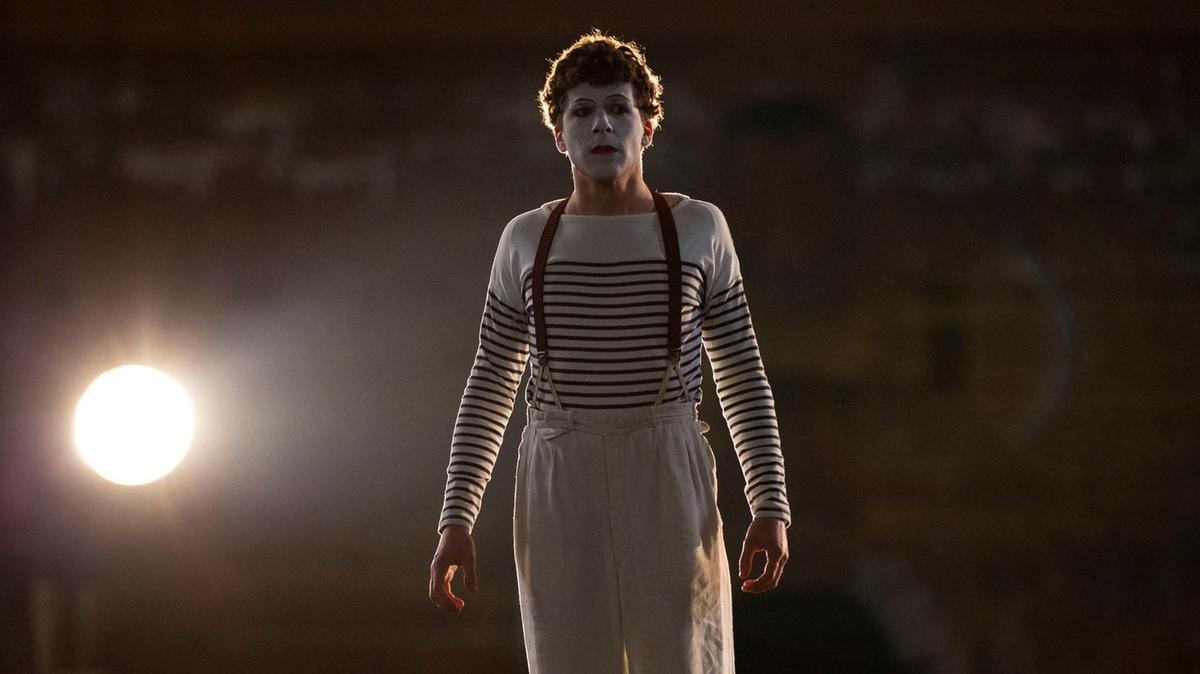
The beneficiary of his mother’s artistic skill, Eisenberg has been practising mime with the next generation.
“Before my child could speak I was rehearsing for this movie and performing mime for him,” he said.
“It transcended conversations that we would have had if he were older and could speak, and so there was something that was really unusually powerful and effective about using mime in dialogue with somebody who at the time couldn’t speak.”
THE power of speech can often rally support for a cause or instil hope, but Eisenberg’s performance conveys how mime – the silent art – can be just as compelling.
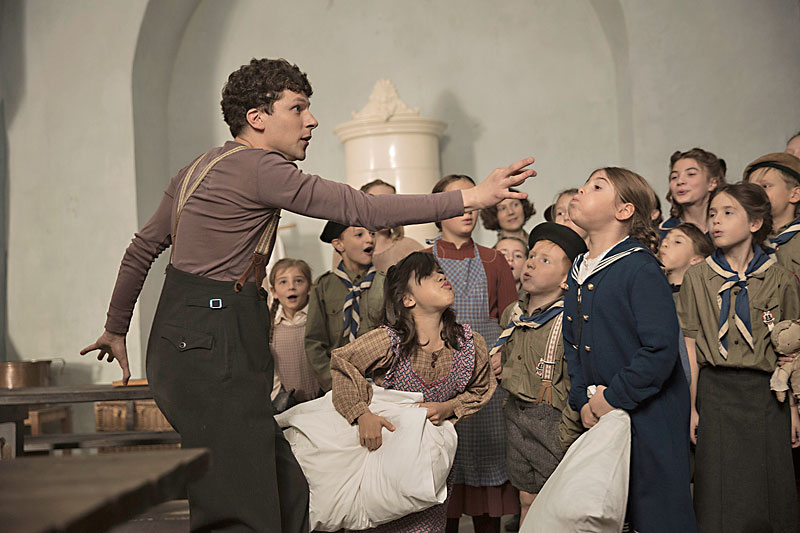
In Resistance, Marceau initially uses mime purely for performance before discovering how his talent can fulfil a deeper purpose, allowing him to brighten the spirits of bereaved children.
“Marcel starts out as an indulgent young performer who is petulant and who thinks the most important things in the world are his performances. Over the course of performing for these kids, he realises what his art can do,” Eisenberg commented.
“Marcel was so worried that performing for kids would somehow degrade his craft, and I think what he discovers in the movie is that it is actually what forms his craft … When we first meet him, Marcel is performing in a dive bar and no one is paying attention. It’s joyless. And then when he is performing for the kids it brings out a reason for performing.”
In some ways, Marceau’s process of deriving meaning from his acting has mirrored Eisenberg’s own journey.

Eisenberg tells that his wife, Anna Strout, works with 100 underserved schools in arts education, and his best friend teaches in schools for struggling students. Eisenberg assists on both fronts.
“I have tried to reconcile how the art that I am interested in can be of service to other people since I started acting and writing when I was 18 years old,” he said.
“I think a lot of artists struggle with this feeling – a lot of artists tend to be empathetic people and it’s sometimes why they were drawn to their work in the first place – and yet when you get wrapped up in the day to day business of it, you lose track of how your work can be of service to other people.”
IN an early pivotal scene in Resistance, Marceau is alerted to the plight of Jewish orphans.
As he witnesses a group arrive by bus following Kristallnacht, the scene marks the beginning of Marceau’s transformation from a self-invested artist to a heroic figure concerned with alleviating the suffering of children under his protection.
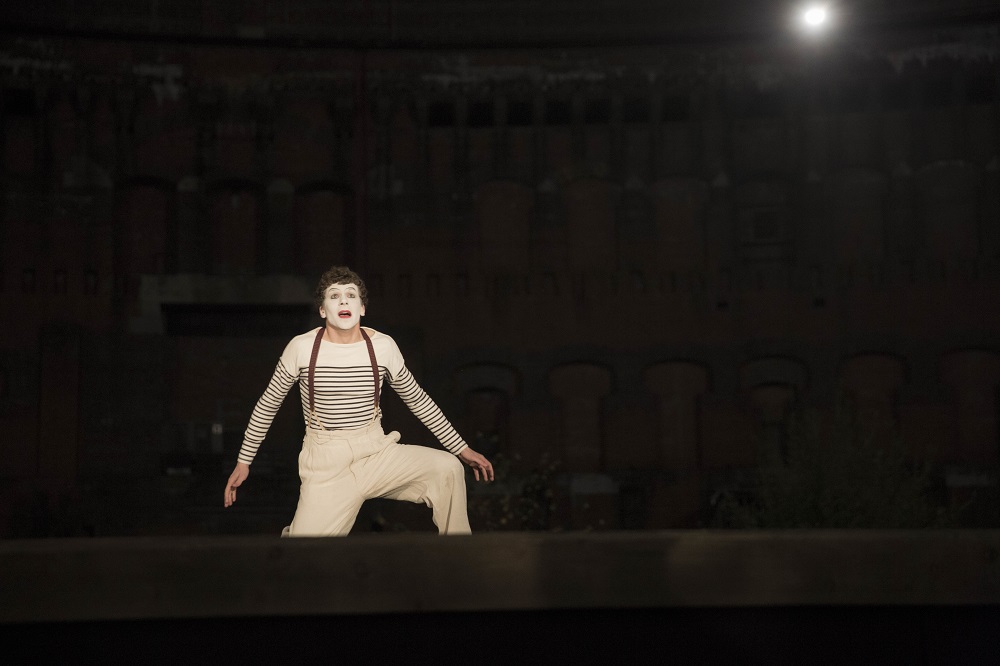
The scene is all the more affecting when placed within a contemporary context.
“The day before we filmed that impactful scene the Tree of Life [Synagogue] shooting happened in Pittsburgh,” shared Eisenberg.
“On the one hand, it felt like we were doing a historical piece about a bygone time and thank God it’s over, and on the other hand we felt this is a disease that doesn’t ever seem to be eradicated.”
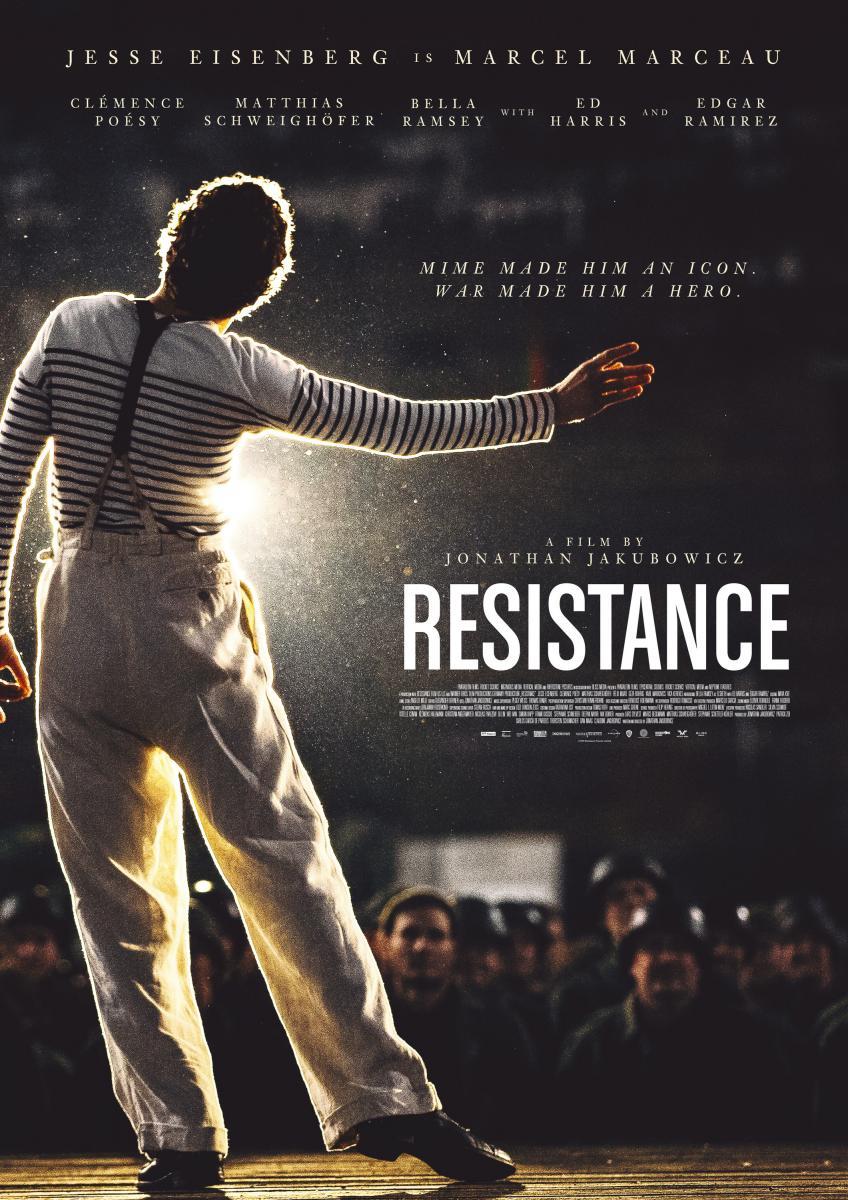 Filming in Germany offered additional insight that hit close to home.
Filming in Germany offered additional insight that hit close to home.
“On weekends we were going to Dachau concentration camp and meeting with people affected by the war or even spending time with German crew who were working on the movie and would tell me the stories of their families – some of which were really amazing about families that helped people survive the war – and some stories that they were ashamed to have in their family,” he commented.
Reflecting on his own family’s involvement in the Holocaust, Eisenberg remarked, “I became obsessed with my family’s history during the war when I was 19 years old. I would see my aunt every week – she died last year at 106 … She was born in Poland and then when she was about nine she came to America … I became really fascinated and it was interesting for me as an American teenager to have some connection to something that was so much more historically relevant than my own life. Doing this movie connected me that much more to that period of time.”
Resistance is now available to rent from Classic At Home on athome.classiccinemas.com.au and from the Foxtel Store, with a future release in cinemas.

comments